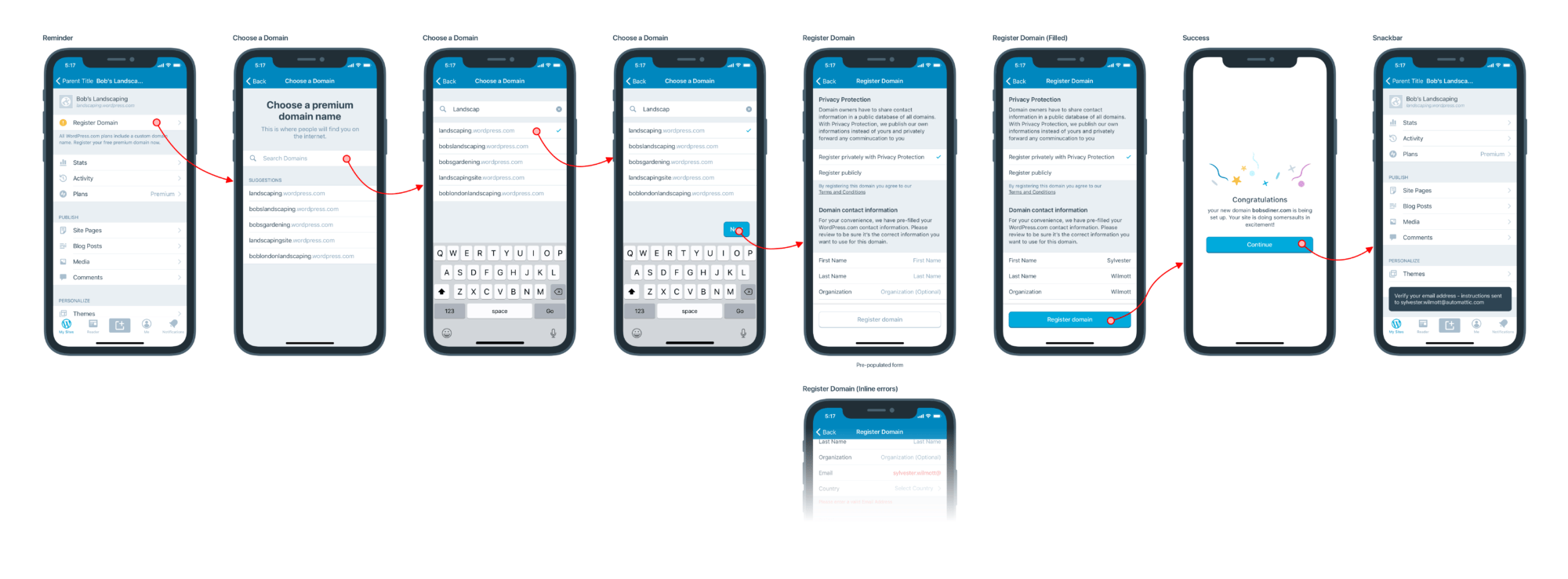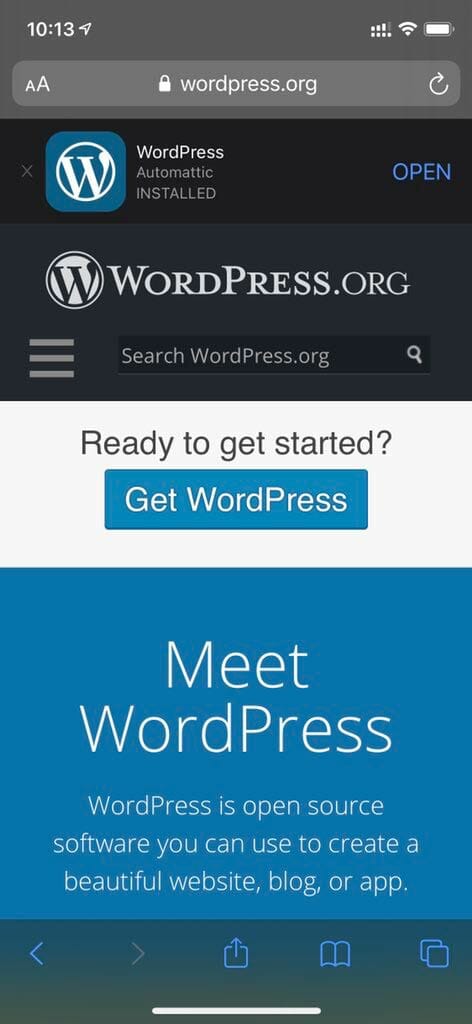
Update: Corrections 2020-08-25
It appears Automattic did not have “purchasable” content in the WP app. Apple’s reaction was a bit overblown and self-corrected when it was brought to their attention. My argument remains the same: leave commercial stuff out of the WP app in good faith. And if IAP is added to the WP app, perhaps put “your money where your mouth is” and donate 5% (5 for the future) back to the WordPress Foundation, which is in charge of protecting and enforcing the WordPress trademark.
Also, let’s stop muddying the waters between .org and .com and avoid yet another “marketplace” with arbitrary criteria for getting in.
The last time I posted a WP Drama article, I left my opinion out of it. This is not going to be the case here. So prepare to enter conspiracy theory land.
Update: I love to be proven wrong. Perhaps there was confusion over domain credits and their ability to be redeemed in-app.

Apple and In-App-Purchases
Let’s start out on a firm foundation. Apple has an app store on iOS. Apple charges developers for access to this iOS app store. Developers develop apps, submit them to Apple, and if Apple agrees based on their arbitrary criteria, allows the app in the app store.
Apple has its own weird rules in the app store, which I’m not going to rant about here. But one hard rule they have is that all In-App-Purchases must use “their” way of doing things. This basically means that any app trying to sell something must go through Apple.
For the mere privilege of being in the Apple app store and selling something, Apple wants 30% of anything you earn. It’s the cost of doing business in the Apple app store. You want to sell something on the app store? Prepare to fork over 30% of your sales.
Is 30% too high? Is it unethical? Should apps be allowed to bypass Apple in order to avoid the 30% tax? All of those answers are above my pay grade. Should it be fought tooth-and-nail? Sure. But as I have no interest in publishing anything in the Apple iOS app store, I could care less.
From my perspective, I download an app. The app allows me to purchase stuff. Yay. So I do. I don’t care that both Apple and the developer get a cut. I just want my shiny new thing on my phone.
WordPress and In-App-Purchases
Yesterday I started getting a wave of bullshit articles and PR tweets saying that Apple has forced the WordPress app, which offers no in-app-purchases, to now have in-app-purchases. This is utterly and completely stupid if this were true. News flash: it isn’t.
I mean, how dare evil Apple force a free and un-evil “WordPress” app to suddenly have to offer in-app-purchases? It simply makes no sense.
The developers behind the WordPress app were trying to add in commercial features that bypassed the Apple wall. Apple said, no, I want my cut. The developers raised a stink on Twitter, and it was picked up by major news outlets. How dare Apple, right?
Apple is Apple. They want money. That is a well-established constant. And yes there are lawsuits saying Apple is being unfair in this practice. It is yet to be worked out if Apple is using their position for evil, and likely they are. But that is besides the point.
So the TLDR of this whole mess is that the developers of the WordPress app wanted to add commercial features to the free WordPress app. Apple said, sure, but we want our cut. Developers raised a stink about Apple forcing them into in-app-purchases. In a way, this is true. If you want to add commercial shit in an app, Apple wants their cut. That’s the way it currently is.
Apple is by no means forcing free apps to suddenly add in in-app-purchases. I mean, what would they sell? It’s stupid.
The WordPress Trademark
The WordPress name was gifted to the WordPress foundation in order to protect it.
The WordPress Foundation is a charitable organization founded by Matt Mullenweg to further the mission of the WordPress open source project: to democratize publishing through Open Source, GPL software.
The WP Foundation
And to be honest, it doesn’t look like it makes much money. It is a not-for-profit organization, so it making money is not a super horrible thing.
Arguably the most valuable thing it has is the WordPress and WordCamp trademarks.
The WordPress Foundation owns and oversees the trademarks for the WordPress and WordCamp names and logos.
The WP Foundation
The copy is very clear on who can use the WordPress trademark. For a groovy overview of the trademark, you can check out the article below.
Automattic gifted the WordPress trademark to the WP Foundation so as to be impartial. Within the article is a quote from Matt Mullenweg (I can’t verify the authenticity of the quote):
Automattic might not always be under my influence, so from the beginning I envisioned a structure where for-profit, non-profit, and not-just-for-profit could coexist and balance each other out. It’s important for me to know that WordPress will be protected and that the brand will continue to be a beacon of open source freedom regardless of whether any company is as benevolent as Automattic has been thus far.
Matt Mullenweg?
Automattic is allowed to use the WordPress trademark as part of a grandfathering deal.
Correct — WordPress.com (Automattic) and .net/.org (me) are grandfathered in as part of the transfer, so they’ll continue to operate as before, but no special rights for any new domains which would need to go through the Foundation just like anyone else. I’m not really worried about that as there are no plans to call anything new “WordPress.”
Matt Mullenweg
The above comment, to put it in context, is a response to this one:
The WordPress Foundation is a charitable organization founded by Matt Mullenweg to further the mission of the WordPress open source project: to democratize publishing through Open Source, GPL software.
The WP Foundation
So far we have established that Automattic owned the WordPress trademark. It was gifted to the WP foundation to protect it. Automattic is allowed to use it as part of a grandfathering deal. Cool. This has only caused perpetual confusion between WordPress.com and WordPress.org.
The WordPress iOS App
Debatably, the WordPress mobile app eco-system is part of WordPress Mobile.
On the repo, the app is linked to ios.wordpress.org, which redirects to https://apps.wordpress.com/mobile/.
The Make .org blog is still active. https://make.wordpress.org/mobile/
The most recent articles are posted by designsimply, an Automattic employee.
So my question is this: is the iOS App a .org or .com product? If it’s a .com (Automattic product), then so be it. Automattic can do whatever it wants it including adding “commercial” features to it.
Update: the iOS App is indeed an Automattic Product.
If that’s the case, then, sigh. “It is what it is.” And it will further muddy the waters about the difference between .com and .org.
Granted, Automattic has a good case if it does indeed own the iOS app. They’ve invested a lot of man/woman hours into the app. But guess what? The 50,000+ plugins on .org have also invested a lot of time to release their apps for free. The 7000+ themes on .org? Same argument. So I personally don’t care if .com put a lot of hours in the WordPress app. The .com devs have been paid. The .org developers have not.
Conclusion
How about instead of bitching about Apple, let’s make a concession? Keep the commercial features out of the WordPress iOS app in good faith. Stop muddying the waters between .org and .com. Let the app remain “free.”
Update:
Further muddying the waters. An Automattic product being advertised on .org.




